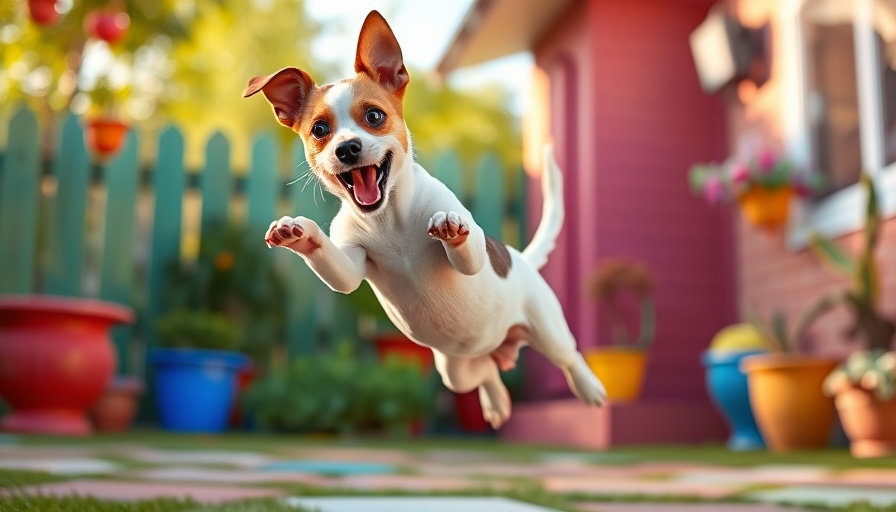
Why Do Dogs Run Away? Understanding the Reasons
Every pet parent's worst nightmare is having their beloved dog escape, seemingly in the blink of an eye. Whether it’s through a small opening in the fence or an open door, a dog’s run from home can happen within seconds. But it’s essential to understand that dogs don’t run away out of a lack of love for their owners; their instincts, curiosity, or anxiety often drive them to seek adventure beyond their familiar surroundings.
Common triggers of canine escapades include things that stimulate their inherent desires. For instance, dogs with high energy, like Huskies and Border Collies, are more prone to wander if they feel bored or confined. Meanwhile, a loud noise — say, Fourth of July fireworks or a thunderstorm — can send even the calmest pup racing for safety.
Keeping Pets Happy: The Importance of Exercise
Two key factors to prevent a runaway situation are physical exercise and mental stimulation. A single missed walk may seem minor, but it can lead to major consequences. Dogs that don’t receive adequate exercise might feel restless and eventually escape to explore, driven by excess energy. Regular walks, playtime, and even engaging games can go a long way in ensuring your pets feel fulfilled.
Moreover, incorporating play sessions that challenge your dog's mind—like puzzle toys or obedience training—can make a significant impact. Such activities not only bond you with your pet but also keep their anxiety at bay, decreasing the likelihood of a runaway incident.
Recognizing the Warning Signs of an Impending Escape
Being proactive means knowing what to look for regarding potential escape behaviors. For instance, habits such as pacing, excessive barking, or scratching at doors may signal that your dog is feeling anxious or bored. If you catch these warning signs early, you'll have an opportunity to engage them with a walk or playtime, steering them away from making an escape attempt.
Catching these behaviors and addressing them promptly will give your furry friend the mental and physical stimulation they crave. Moreover, observing your dog's body language can be key in understanding their emotional state—if they seem overly agitated, it may be time for a calming session or an outdoor excursion.
Effective Preventative Measures to Reduce Risk
Implementing preventative measures is essential in reducing the risk of your dog running away. Secure your yard with tall and sturdy fences, and ensure any gates are latched securely. Training your dog for recall commands can also contribute to their safety, helping them understand that they need to return on command, no matter the distractions around them.
Additionally, providing a loving and enriching home environment is vital, one where your dog feels safe and content. Using tools like calming music, pheromone diffusers, or even dog anxiety vests can help alleviate the stress many pets face during loud events.
Counteracting the 'Runaway' Trend Through Community Support
As a community, it’s essential we come together to prevent these heart-wrenching escapes. Organizations and local shelters often host workshops focusing on dog training and behavioral courses that can significantly educate pet owners. By raising awareness and sharing best practices, we can make notable strides in keeping our dogs close to home and safe.
Stay connected with your local pet communities through social media, and attend events that provide helpful resources. Engaging in discussions about pet health and wellness strengthens not only our knowledge, but builds relationships with others who share our passion for keeping our furry friends safe and secure.
Conclusion: Take Action to Protect Your Pets Today!
As responsible pet owners, understanding why dogs run away and employing effective prevention methods can make all the difference in keeping your furry family member safe. Regular exercise, mental stimulation, active prevention, and community engagement form the foundational steps towards ensuring a happy home for your dog. If you notice any potential signs of anxiety or frustration in your pet, react quickly! After all, regular walks not only enhance your dog’s well-being but also solidify the bond you share. Begin today by enriching your pet's daily routine and getting involved in your local pet community.
 Add Row
Add Row  Add
Add 




 Add Row
Add Row 


 Add
Add
Write A Comment